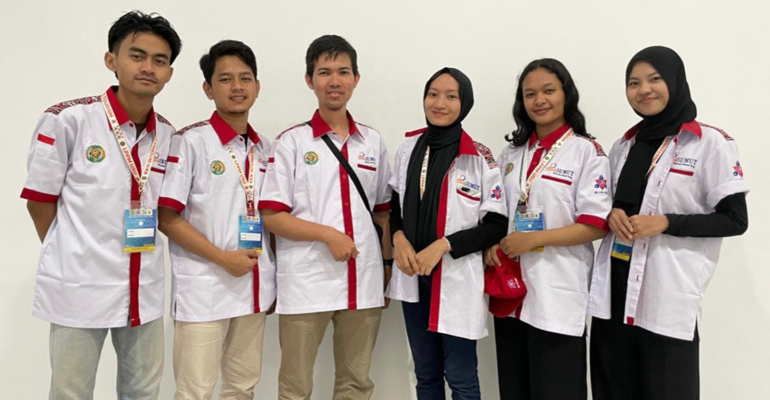IPB University Sends Five International KKN Delegation Students, Increases Samosir Island Tourism

As many as five IPB University students participated in the opening series of International KKN organized by the West Region State Higher Education Cooperation Agency (BKS PTN), Ministry of Education, Culture, Research, and Technology (Kemendikbudristek). The opening event took place at the University of North Sumatra (USU).
The five IPB University students are Gilang Ramdani (Faculty of Agricultural Technology), Ishaq Sukmadi (Faculty of Agriculture), Miftah Marshanda (Faculty of Animal Science), Fiona Andriyan (Faculty of Economics and Management), and Jesika BR Girsang (Faculty of Mathematics and Natural Sciences). The five students were accompanied by the Directorate of Agromaritim Community Development (DPMA), represented by Pandu.
As a student companion team, Pandu said that IPB University first participated in International KKN by sending as many as five students who will participate in activities for one month from August 5 – September 5, 2024 in Samosir.
“IPB University sent five students to take part in International KKN in Samosir. We chose the five students because they met the criteria that had been set. They will join the International KKN from August 5 – September 5, 2024,” said Pandu.
Chairman of USU Community Service Institute (LPPM), Prof Tulus, said, “Our international KKN is designed for tourism sustainability on Samosir Island, so the theme carried is Sustainable Tourism.”
The chief executive of KKN International, Dr Rusdi Noor Rosa as a, reported that this program was attended by 38 western universities in Indonesia. International KKN participants consist of 164 domestic students and 28 foreign students from abroad. The foreign students who take part in this program come from Malaysia, Germany, Myanmar, Thailand, Pakistan, Yemen, and Sri Lanka.
“We hope that through international KKN activities for one month located in Samosir Regency and Karo Regency, North Sumatra can provide benefits to the community through the tourism sector,” added Dr Rusdi Noor Rosa. (*/Rz) (IAAS/HLF).



